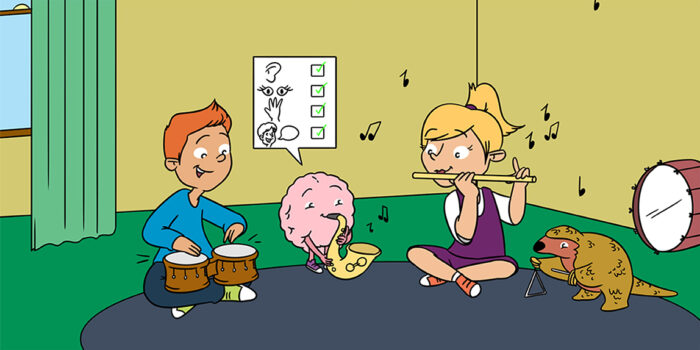Did you know that your childhood music lessons as a kid might be able to keep your mind sharp when you’re older? A recent study found this interesting connection!
So, How Does Childhood Music Lessons Benefit The Aging Mind?
This recent study, featured in the journal Psychology and Aging, suggests that childhood music lessons may yield mental benefits in later life. The research, sponsored by Age UK and the Economic and Social Research Council, explored the cognitive advantages of musicians compared to non-musicians.
Involving 420 participants born in 1936 from the Edinburgh and Lothian regions of Scotland, the study discovered that individuals with some history of playing a musical instrument, particularly during their youth, exhibited slightly better results in cognitive ability tests. Notably, 39 of these participants continued playing an instrument into their 82nd year.

The study, conducted collaboratively by researchers at the University of Edinburgh and Edinburgh Napier University, assessed the brainpower of these participants at three-year intervals between the ages of 70 and 82.
The results indicated a correlation between musical experience and improved performance in tests measuring processing speed and visuospatial reasoning.
Read more here: What Is Lofi Music? 5 Reasons Why It Is Good For Your Mental Health
Lead author Dr. Judith Okely from Edinburgh Napier University expressed enthusiasm about these findings and stressed their potential to encourage further exploration into how lifelong musical engagement contributes to healthy aging.
Importantly, even after accounting for factors such as childhood intelligence, education levels, smoking habits, and physical activity, the connection between musical experience and enhanced cognitive abilities remained.
However, researchers cautioned against concluding that music lessons alone directly increase cognitive skills, as there could be unidentified variables at play.
Nevertheless, experts in psychology and music assert that these results provide valuable evidence that learning to play a musical instrument during youth may help maintain mental acuity in old age.
The precise mechanism behind this link remains uncertain, but it is hypothesized that the cognitive demands of playing an instrument, such as reading sheet music and coordinating hand movements, might fortify neural connections and overall brain function.
Read more here: How Music Heals and Inspires Us in Challenging Times
Further investigation is needed to fully comprehend why these enhancements occur and to establish any enduring cognitive benefits. This study marks an exciting starting point for future research into the potential lifelong impacts of musical engagement on cognitive well-being.
So, did you take childhood music lessons? If yes, share your thoughts below!








Leave a Reply
You must be logged in to post a comment.